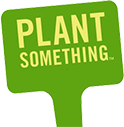Garden centers typically can offer their customers several advantages that big box stores can’t fully duplicate. One of these is the ability to provide customers with valid, localized information about the challenges they face.
When I ask my neighbors, friends and other gardeners where they would go if they had a question about a problem in their garden, they almost always answer me with the name of a local garden center.
While this might seem like an easy thing to provide, that is not necessarily the case. Is it important? Absolutely, and that’s why garden centers should focus on it.
Much as we want it to be, gardening isn’t always easy. There are so many factors gardeners must consider.
Varying geographic climates. Soils. Sun and shade exposures (or a combination of them). Fertilizers, insecticides, fungicides and herbicides. Going organic vs. non-organic.
It is difficult to sort everything out. What is a home gardener to do to solve this dilemma? The importance and complexity of this challenge hit me recently when I attended a training session. Although it was open to the public, the session was primarily designed for Master Gardeners as part of their continuing education program.
The Master Gardener program has done a superb job of getting people involved in gardening, some of whom have probably not had much prior experience. It’s a bonus for everyone when we can connect more people to the earth, especially in urban settings, and show them how enjoy the benefits of gardening.
The class that I attended was billed as a discussion about the pros and cons of organic and conventional gardening. It sounded like an interesting topic. Since I like to stay current with what is happening in the overall garden community, I decided to attend.
It was not long into the presentation that my intuition told me that the preferred method of gardening by this speaker was not organic. This is not necessarily either good or bad. However, it meant that this presentation was certainly not going to
be neutral.
I had expected some comparisons between the two types of gardening and a discussion about the positives and negatives of each. I figured participants could add these pros and cons to their store of knowledge and help other beginners garden in the way that suits them best.
That is not exactly what I got. Nonetheless, it was an interesting presentation.
As I glanced at the audience, I was reminded over and over that when the gardening public asks questions, these people will provide the answers — and the answers are likely to be what the speaker was telling them. As I was considering the implications of this, the topic of neem oil came up. The speaker asked how many in the audience have recommended neem oil. Many hands were raised. Then, the speaker talked about how we want to be good stewards of the earth. We want to control pests using methods that are environmentally friendly and materials that are the least toxic.
The speaker said that neem oil is produced by extracting it from the leaves, which need to be removed from the tree. The speaker then asked what happens when the leaves of a plant are continually removed?
The audience responded with the answer that logically followed: “The plant will die.”
But that didn’t sound right to me.
The idea that the neem tree would die with continued harvesting of the leaves didn’t seem correct. However, I was not qualified to challenge this information. I lacked my own knowledge of how neem oil is produced.When the class was over, I did some checking. I learned that neem oil is not harvested from the leaves. Rather, it is produced from the seeds. Thus, the harvest is not detrimental to the tree.
My thoughts went back to the audience. I double checked what the speaker had told them. They perhaps had not. The likelihood of their recommending neem oil was probably drastically different, based on the speaker’s comments.
When misinformation is given out, what is the proper protocol is for someone in the audience, especially someone like me as a guest, to question it? The situation is at best unfomfortable.
In the days after this class ended, this dilemma stuck with me. It seems like there should be a method of dispelling misinformation. The ideal time would have been just before when the lecture was over, so that the audience would be leaving with correct information. The alternative means allowing the audience to leave with bad advice — and spread it to others.
This is an important issue because it is difficult for garden center employees to always have an answer to every question that a customer asks. We must know where to look to get the accurate facts. My suggestion is to never stop searching, and when looking on the Internet, always consider the source of the information.
For Oregon gardeners, Oregon State University has excellent factual information concerning many horticultural questions. I would consider OSU to be a reliable source. Most other states have a similar institution that provides researched horticultural information.
There is so much misinformation available today, particularly with social media, that it is imperative that garden centers strive to provide factual, usable information for gardeners. Who better is there to give the best advice than those who choose, grow, protect and sell the plants? Gardening customers are looking to the people whom they trust for the answers to their questions. Garden centers have privilege and the burden of making sure gardeners have the latest and most up-to-date information.
